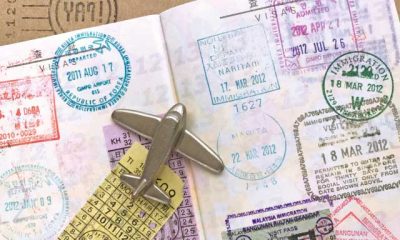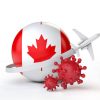Immigration
Key Factors to Keep in Mind When Applying for a Study Visa in Canada
Canada is a highly desirable destination for international students, professionals, and families seeking to study, work, or live abroad. The country’s exceptional education system, favorable work conditions, and progressive government policies are among the many factors that attract a large number of immigrants. Every year, numerous students choose Canada as their educational hub to benefit from its renowned academic programs.
To study in Canada, prospective students must first acquire a student visa. The initial step involves submitting an application to a Canadian educational institution that is recognized by the government. Additionally, individuals must demonstrate the following;
- Your application should be accepted by a Canadian learning institution that is registered with the government.
- You must also demonstrate that you have the necessary finances to cover the expenses listed below.
- Fees for attendance at school.
- Expenses incurred in connection with one’s own and one’s family member’s stay
Costs associated with returning you and a family member to your home country. - You should not have any criminal convictions on your record.
- You must be prepared to submit to any medical examination.
- You must depart the country as soon as your visa validity period has expired.
- A Study Permit is an official document that is issued by the Canadian government to researchers.
- Your visa expires approximately 90 days after the start of your educational program.
- after you have completed the course, you will receive a notification from the institute stating that you have completed the program.
Exemptions for Study Canada Visa
There are a few situations where you might be exempt from needing a study visa to pursue your educational dreams in Canada. These exemptions are designed to make the process easier for certain individuals. Let’s take a look at the exemptions:
- Short-term study course: If you plan to enroll in a study program that lasts less than six months, you won’t need a student visa. This is great news if you’re interested in a short-term educational experience in Canada.
- Foreign military forces: If you’re a member of the foreign military forces and want to study in Canada, you’re in luck. The Canadian government has a special provision called the Visiting Foreign Forces Act that exempts you from needing a student visa. This recognizes the importance of military cooperation and makes it easier for you to pursue your studies.
- Family members of Department of Foreign Affairs, Trade, and Development employees: If you have a close connection to someone working at the Department of Foreign Affairs, Trade, and Development in Canada, you don’t need a study permit. This exemption acknowledges the familial relationships and simplifies the process for you.
- Registered Indian status: If you obtain registered Indian status while you’re in Canada, you won’t require a study visa to pursue a degree there. This exemption recognizes the unique status and rights of registered Indians, making it easier for you to continue your education without the need for an additional visa.
These exemptions are meant to accommodate specific circumstances and make the process more accessible for individuals who fall under these categories. By understanding these exemptions, you can determine if you qualify for an exemption and pursue your studies in Canada hassle-free.


















